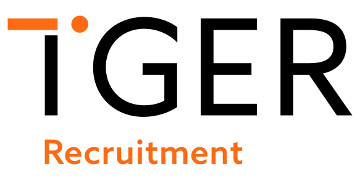A survey by recruitment firm the IN Group found that 52% of UK CEOs and more than a third (37%) of CHROs and CPOs thought that their organisation was falling behind with diversity in their workforce.
Despite some HR leaders' anxiety over diversity, the same research found that 37% of CHROs and CPOs said they did not have a priority when it came to increasing diversity in their organisation.
Building a diverse organisation starts with recruiting diverse talent, said Alex Pusenjak, vice president of people and culture at software company Fluent Commerce.
Speaking to HR magazine, he added: “As HR professionals, there is a consistent desire to create a diverse and inclusive workforce which can’t be done if the job postings themselves aren’t structured that way.
“For example, businesses often claim that they don’t have enough women in leadership positions because there aren’t enough candidates to choose from. However, it could be argued that the company itself isn’t doing its due diligence in making itself a desired employer for women.”
Read more: Lack of diversity more expensive than ever
Inclusive job adverts could be used to attract more diverse talent, Punsenjak added.
“Where companies vie for top talent, the job posting stands as the initial handshake: an introduction that can either captivate or repel potential candidates,” he continued, before referring to organisational intentions about diversity, equity, inclusion and belonging (DEIB).
“HR professionals should be transparent about DEIB intentions, letting the job posting echo this commitment. After all, job postings aren’t mere announcements, they’re an introduction to the type of work environment you are attempting to create.”
Employers should ensure that inclusive language is used in job postings, he noted.
The boardroom is responsible for setting the organisational agenda for diversity, argued Rachael Hays, transformation director for consultancy Definia and DEI committee co-lead at the IN Group.
“Attracting diverse talent requires genuine, authentic sponsorship from the top,” she told HR magazine.
“The boardroom should be front and centre in promoting diverse recruitment initiatives, starting with creating a clear strategy and goals,” she continued.
“Is the goal to reach a specific percentage of diverse employees? If so, at what experience level? What does DEI mean to your organisation? Is it about visible diversity or diversity of thought?
“These are the questions that the boardroom needs to ask themselves when setting their recruitment policies.”
Read more: "Diversity in boardrooms is not an option; it’s a strategic necessity"
The IN Group research found the most specific goal that senior leaders had when improving diversity in their organisation was to increase ethnic diversity, as 15% cited this as their priority.
Once leaders have decided their priority for diversity in their organisation, employers should ensure diversity runs throughout the entire recruitment process, Hays suggested.
She said: “Policies such as only accepting diverse shortlists for roles, ensuring diverse panels evaluate candidates, putting measures in place to rectify non-equal pay, creating diverse steering groups, and shadow boards, are all ways that employers can create a recruitment process that supports a diverse workforce.
“Once diverse recruitment policies are set, boardrooms need to measure results and promote them to hold themselves accountable. It’s important to be honest if efforts aren’t working. Company policies should be interrogated to ensure they align with DEI goals, and if they aren’t working, employers must be prepared to change their approach.”
The IN Group surveyed 250 senior leaders in the UK, including C-suite, HR and CPOs in February and March 2024.










